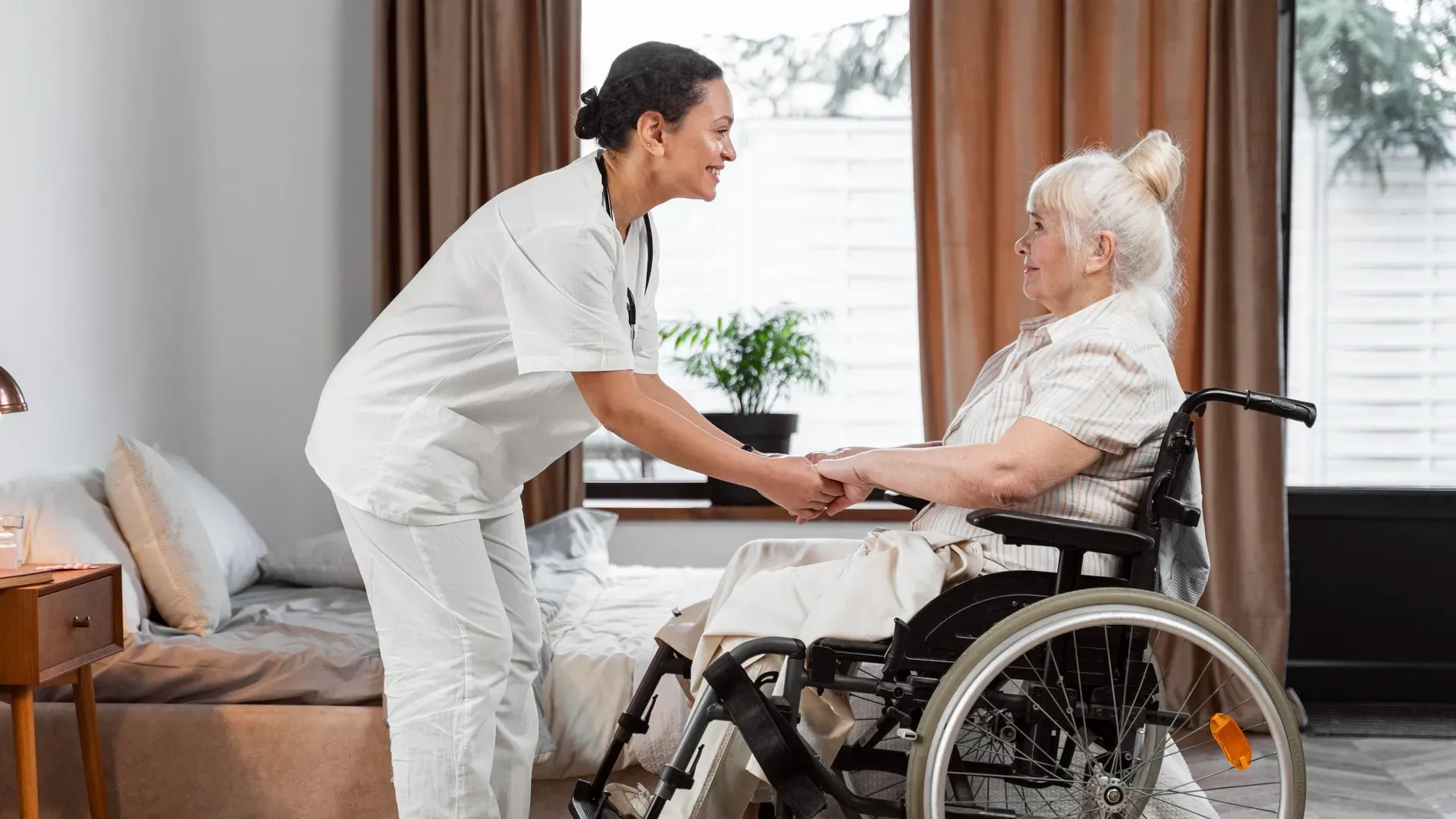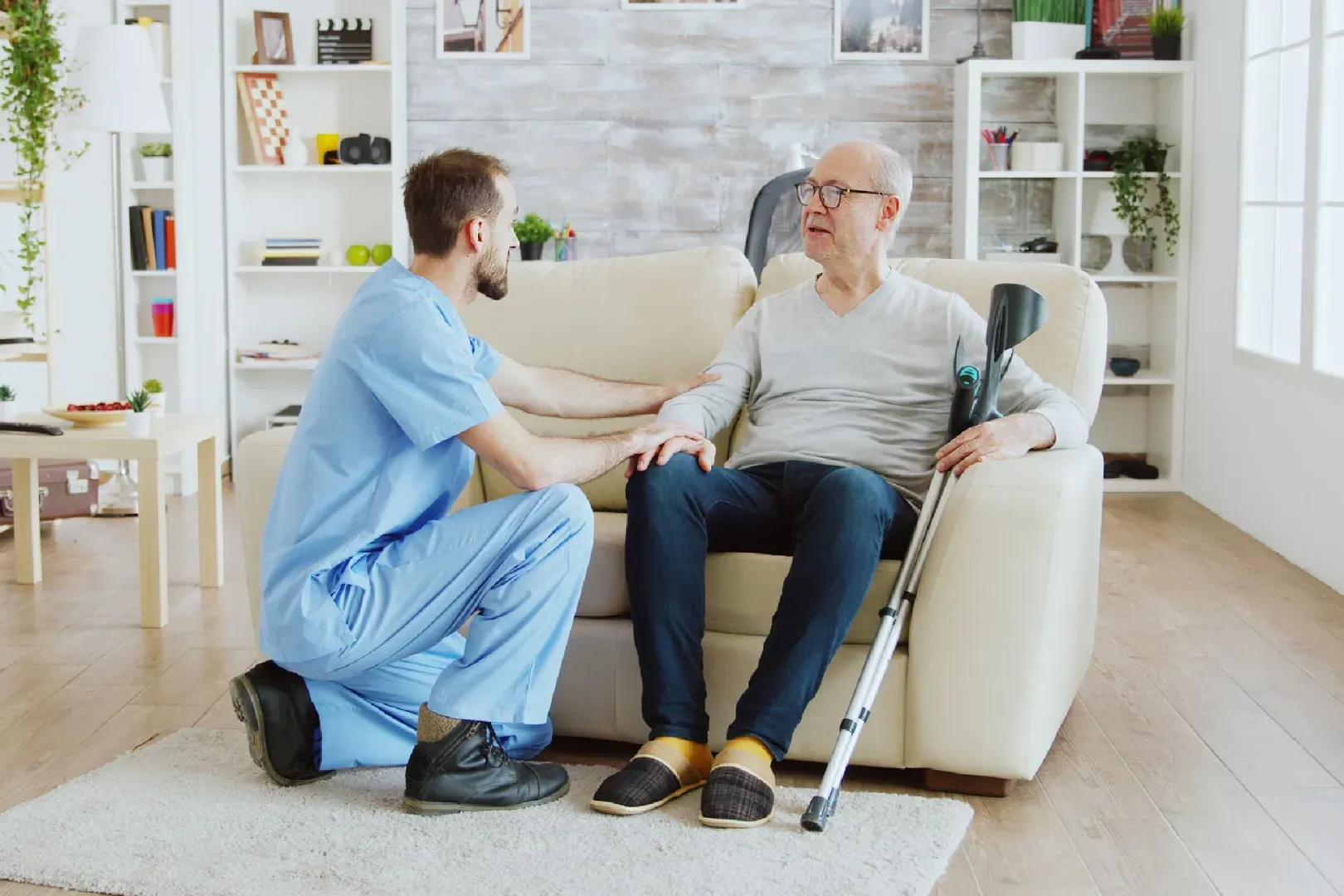Medication Management Made Easy: Ensuring Senior Health and Safety
Medication Management Made Easy: Ensuring Senior Health and Safety
Managing medication effectively is a cornerstone of maintaining health and safety among the elderly—a task that requires precision, care, and comprehensive knowledge. As we delve into the complexities of medication management for the elderly, it becomes clear that this is not just a concern but a critical aspect of healthcare that demands attention from top-quality nursing professionals. Our goal is to illuminate how reliable nursing staff and caregivers can implement robust medication management practices, ensuring that elderly patients receive the care they need to thrive.
In this article, we will unfold the intricacies of medication management for the elderly, discuss strategies for safe medication management, and highlight the importance of avoiding medication errors and interactions. Furthermore, we will explore how to plan for special circumstances that may arise in the course of medication management. By shining a light on these key areas, we aim to provide a comprehensive guide that empowers healthcare providers and caregivers to deliver exceptional care, ensuring the health and safety of our most vulnerable population.
Understanding Medication Management for Seniors
Medications play a crucial role in maintaining health, especially for older adults who often face multiple health challenges simultaneously. However, managing these medications effectively is paramount to ensure they do more good than harm. This section delves into the importance of effective medication management, common challenges faced by the elderly in managing their medications, and the risks associated with polypharmacy.
The Importance of Effective Medication Management
For many older adults, the key to maintaining independence and avoiding nursing home placement lies in the successful management of their medication regimens. With the largest consumption of prescription medications occurring in this age group, the stakes are high. Approximately 30 percent of hospital admissions in older adults are drug-related, with a significant portion attributable to medication nonadherence and adverse drug reactions (ADRs). Ensuring that seniors can manage their medications effectively not only supports their health and safety but also significantly reduces healthcare costs.
Common Challenges in Managing Medications for the Elderly
- Polypharmacy: The use of multiple medications, or polypharmacy, is a growing concern among older adults. With many suffering from multiple chronic conditions, the complexity of managing various drugs increases, leading to safety concerns.
- Medication Complexity: The more medications an older adult is prescribed, the higher the risk of nonadherence. Factors contributing to this complexity include the number of doses per day and the actions related to taking the medications.
- Cognitive and Physical Impairments: Challenges such as poor vision, reduced grip strength, and cognitive decline can make medication management daunting for older adults. These impairments can hinder their ability to follow medication instructions accurately.
The Risks of Polypharmacy
Polypharmacy, defined as the use of multiple drugs or more than are medically necessary, presents several risks:
- Adverse Drug Events (ADEs): The burden of taking multiple medications has been associated with an increased risk of ADEs, drug interactions, and medication non-adherence.
- Functional Decline: There is a clear association between polypharmacy and reduced functional capacity, including diminished ability to perform daily living activities.
- Cognitive Impairment and Falls: Polypharmacy has been linked to cognitive impairments and an increased risk of falls, which are major concerns for older adults' safety.
Challenges
Consequences
Polypharmacy
Increased risk of ADEs, drug interactions
Medication Complexity
Higher rates of nonadherence
Cognitive and Physical Impairments
Difficulty in following medication regimens accurately
Functional Decline
Reduced ability to perform daily activities
Cognitive Impairment and Falls
Safety concerns for older adults
In conclusion, understanding and addressing the challenges of medication management for seniors is critical. By recognising the importance of effective medication management, identifying common challenges, and mitigating the risks associated with polypharmacy, caregivers and healthcare providers can significantly improve the health outcomes and quality of life for older adults.
Strategies for Safe Medication Management
Managing medications effectively is crucial for the elderly to ensure their health and safety. As we navigate through strategies for safe medication management, we'll focus on practical steps that can be implemented easily. These strategies include creating and maintaining an up-to-date medication list, establishing a routine for medication intake, and utilising technology for reminders and tracking.
Creating and Maintaining an Up-to-date Medication List
- Start by Gathering All Medications: Collect all prescription and non-prescription medicines, including vitamins, supplements, and over-the-counter remedies. This comprehensive approach ensures no medication is overlooked.
- Sort Medications According to Frequency of Use: Organise your medicines into categories: daily use, regular but not daily, and as-needed basis. This categorisation simplifies the management process.
- Fill in the My Medicines List: For each medication, record the name (both brand and generic), dosage, purpose, and instructions for use. Also, specify the time of day for each dose. Repeat this process for medications taken regularly but not daily, and for those taken as needed.
- Keep the List Accessible and Updated: Print the list and store it in an easily accessible place. Regularly update the list whenever there's a change in medication, and ensure the most current list is always at hand.
Establishing a Routine for Medication Intake
- Dedicate a Space for Medications: Choose a specific area in the home, like part of the kitchen counter, to keep medications and related supplies. This designated spot helps avoid confusion and ensures medications are taken correctly.
- Use Pill Organisers: Pill boxes or organisers can greatly assist in managing daily medication intake. Consider filling the organisers every two to four weeks to streamline the process.
- Set Alarms and Reminders: Utilise alarms on clocks, watches, or smartphones to remind your loved one when it's time to take their medication. This simple step can significantly improve adherence to medication schedules.
Utilising Technology for Reminders and Tracking
- Medication Management Apps: Explore apps like MediSafe, MangoHealth, and CareZone, which offer features like personalised medication reminders, drug interaction warnings, and the ability to track medication intake. These apps can be especially helpful for caregivers managing medications for multiple individuals.
- Pill Reminder Apps: Apps specifically designed to remind users to take their medication at the right times can prevent missed doses or accidental overdoses. Many of these apps also provide features for tracking consistency in medication intake and sharing reports with healthcare providers.
- Automated Pill Dispensers: Consider investing in an automated pill dispenser for more complex medication schedules. These devices not only remind the user to take their medication but also alert caregivers if a dose is missed, offering an extra layer of safety and peace of mind.
By implementing these strategies, we can ensure that medication management for the elderly is not only effective but also straightforward and stress-free. Utilising a mix of traditional methods and modern technology can make a significant difference in maintaining the health and safety of our loved ones.
Avoiding Medication Errors and Interactions
To safeguard the health and well-being of our elderly loved ones, it's crucial to address the challenges of medication management head-on. Medication errors and interactions pose significant risks, but with the right strategies, we can mitigate these dangers effectively. Let's explore some essential steps to ensure safe medication practices.
Recognising and Preventing Drug Interactions
- Stay Informed About High-Risk Medications: Understanding which medications pose higher risks of adverse effects is the first step. Certain drugs should be used with caution or avoided altogether in the elderly. We must be vigilant about these high-risk medications and consider safer alternatives whenever possible.
- Use Screening Tools: Implementing screening tools helps identify potential drug interactions early. These tools assess the safety of polypharmacy, guiding us to make informed decisions about each medication's necessity and potential risks.
- Keep a Current Medication List: Encouraging our elderly loved ones to maintain an up-to-date list of all medications, including over-the-counter drugs and supplements, is vital. Sharing this list with healthcare providers ensures that all medicines are reviewed for safety and necessity.
The Role of Healthcare Providers in Medication Management
Role
Action
Doctors
Should clearly state the purpose of each medication and assess the need for deprescribing based on individual patient goals.
Nurses
Play a critical role in identifying polypharmacy risks and facilitating medication reconciliation and education.
Pharmacists
Offer specialised medication services, including reviews and counselling, to support effective medication management.
Healthcare providers must work collaboratively to create a cohesive plan for managing medications, emphasising the importance of clear communication and shared decision-making.
How to Effectively Communicate with Doctors and Pharmacists
- Prioritise Open Communication: Effective doctor-patient communication is foundational to safe medication use. Encourage asking questions and actively participating in discussions about medications. This two-way dialogue helps ensure that the patient's values and preferences are considered in the management plan.
- Summarise and Check Understanding: Regularly summarising the key points of medication discussions and checking for patient understanding are essential steps. This ensures that the patient fully grasps the reasons behind their medication regimen and how to adhere to it properly.
- Leverage Practical Tools: Utilising practical aids like pill boxes and dose administration aids can significantly enhance medication adherence. Additionally, government subsidies for medication costs may offer financial support, making it easier for patients to follow their prescribed regimens.
- Seek Regular Medication Reviews: Encouraging regular reviews with healthcare providers helps catch potential issues early. These reviews are an opportunity to reassess each medication's necessity, reducing the risk of polypharmacy and adverse drug events.
By fostering a culture of open communication, utilising available tools, and engaging in regular medication reviews, we can significantly reduce the risks associated with medication errors and interactions. Together, healthcare providers, patients, and caregivers can create a safer environment for medication management, ensuring our elderly loved ones receive the care and support they need.
Planning for Special Circumstances
In our journey to ensure the health and safety of our elderly loved ones through effective medication management, it's crucial to consider special circumstances that may arise. These include changes in health status or body composition, the need for safe storage and disposal of medications, and the use of over-the-counter (OTC) medicines and supplements. Let's delve into strategies to navigate these scenarios.
Adjusting Medication Management for Weight Changes or Health Conditions
As individuals age, their bodies undergo various changes that can affect how medications are processed. Weight fluctuations, in particular, can significantly impact medication efficacy and safety. For those experiencing weight loss, sensitivity to certain medications may increase, necessitating dosage adjustments. It's essential to monitor these changes closely and consult healthcare providers to adjust medication plans accordingly.
- Monitor Weight and Health Regularly: Keep a close eye on any significant weight changes or health condition shifts, as these can alter medication needs.
- Consult Healthcare Providers: Regularly discuss any new health developments with doctors and pharmacists to ensure medication regimens remain effective and safe.
- Educate on Potential Risks: Understand the risks associated with popular weight-loss drugs in older adults, such as Ozempic, and the importance of careful monitoring and consultation with healthcare professionals.
Safe Storage and Disposal of Medications
Proper medication storage and disposal are paramount to prevent accidental poisoning and environmental harm. Expired or unwanted medicines, if not disposed of correctly, can pose significant risks.
- Secure Storage: Always store medications in their original containers, in a secure location out of reach of children and pets. This helps prevent accidental ingestion and maintains medication integrity.
- Return Unwanted Medicines (RUM) Project: Utilise your local community pharmacy's services for the safe disposal of unwanted medications. This free service ensures that medicines are disposed of responsibly, without harming the environment or posing a risk to others.
- Educate on Risks of Misuse: Highlight the dangers of keeping unused strong pain relievers 'just in case' and the importance of returning them for safe disposal to prevent misuse and accidental poisoning.
Considerations for Using Over-The-Counter Medicines and Supplements
OTC medications and supplements are widely used by older adults but come with their own set of risks, especially when mixed with prescription medications.
- Awareness of High-Risk OTC Medications: Educate on the risks associated with common OTC medications like ibuprofen, aspirin, acetaminophen, and diphenhydramine. Highlight the dangers of unintentional overdosing and adverse drug events (ADEs).
- Consultation Before Use: Encourage consultations with healthcare providers before starting any new OTC medication or supplement, especially to understand potential interactions with existing medications.
- Keep an Updated Medication List: Maintain a comprehensive list of all medications, including OTC drugs and supplements, and share this with healthcare providers to ensure safe management.
By addressing these special circumstances with careful planning and open communication with healthcare professionals, we can further safeguard the health and well-being of our elderly loved ones. It's about adapting to their evolving needs and ensuring that every aspect of their medication management is tailored to support their health and safety.
Conclusion
As we have explored the multifaceted approach to medication management for the elderly, the central tenets of attention to detail, proactive communication, and the utilisation of both traditional strategies and modern technology stand out as essential components in enhancing the safety and wellbeing of our senior population. The effective management of medication not only mitigates the risks associated with polypharmacy but also empowers elderly individuals to maintain their independence and quality of life, reducing the burden on healthcare systems and families alike.
The journey towards optimal medication management is ongoing and requires the collective effort of caregivers, healthcare professionals, and the elderly themselves. By adhering to the strategies outlined, understanding the challenges, and utilising the resources available, we can create a supportive and safe environment for medication management. The responsibility lies with each of us to continue educating, innovating, and advocating for the health and safety of the elderly, ensuring they receive the care and respect they deserve.











